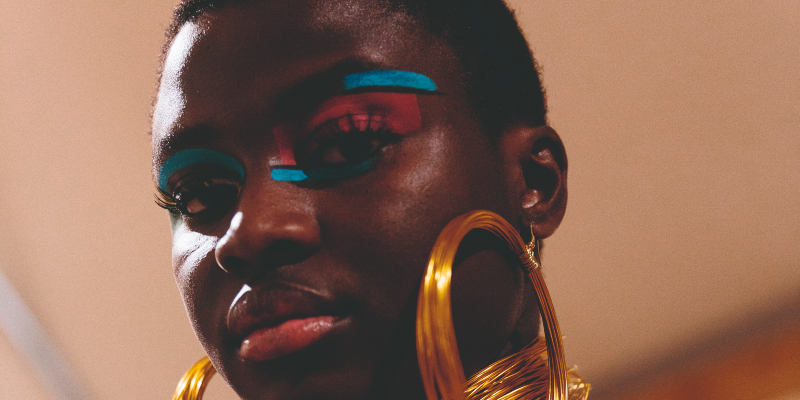The bold type
SPONSORED: In mid-June we found ourselves barefoot on the beaches of Barcelona, wearing cocktail attire accessorised with headphones, ready to take part in a mass Suco session – a kind of silent disco meets mindful workout – alongside 1,200 other guests. The ultimate icebreaker (fashion events tend to steer on the side of serious), the unconventional experience provided a preview of what Spanish fashion brand Desigual had in store for its top secret event.
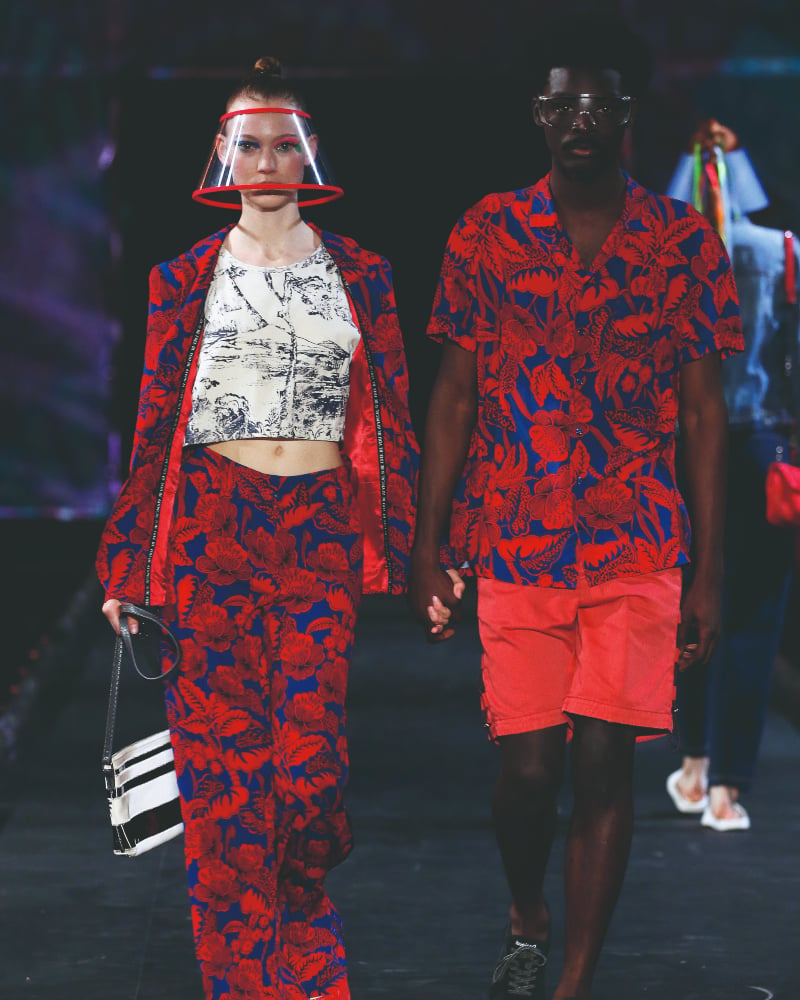
Against the backdrop of the company’s seafront headquarters in the Catalonian city, next we were shown to our seats, where along with the unveiling of Desigual’s boundary-pushing new branding, we witnessed a dynamic catwalk presentation interspersed with eclectic dance acts in a dramatic showcase of the label’s Spring/Summer 2020 collection. To cap off the night, rising Spanish R&B artist Aleesha came on stage for a live performance of her hit single Myself Again, a song created with Desigual along with producer Alizzz. As Emirates Woman went on to learn, the epic event was just the beginning of the transformation of one of Spain’s most popular brands.
Making a business out of boho
Founded by Swiss designer Thomas Meyer in 1984, who remains with the brand to this day, Desigual was born in the El Raval neighbourhood of Barcelona with a plan to, “dress people, not bodies”. The label’s name stuck after famous Spanish filmmaker Isabel Coixet raved that the brand’s now iconic jean jacket crafted from scraps of vintage denim “is not igual, it’s desigual”, meaning “distinct” in Spanish. More than three decades later, the same jacket has been reinterpreted by new artists, Okuda and Spanish actor Jordi Mollá, who took to the catwalk to model the unisex pieces.
Meyer opened his first store two years later in the bohemian playground of Ibiza – a fitting location for his vibrant wears. By 2006 the brand crossed international borders, by launching in Singapore before expanding further into Asian markets, followed by Europe and later America. With over 500 branded stores, Desigual is now present in nearly 100 countries through 13 distribution channels and last year saw sales of more than 22 million garments around the world.
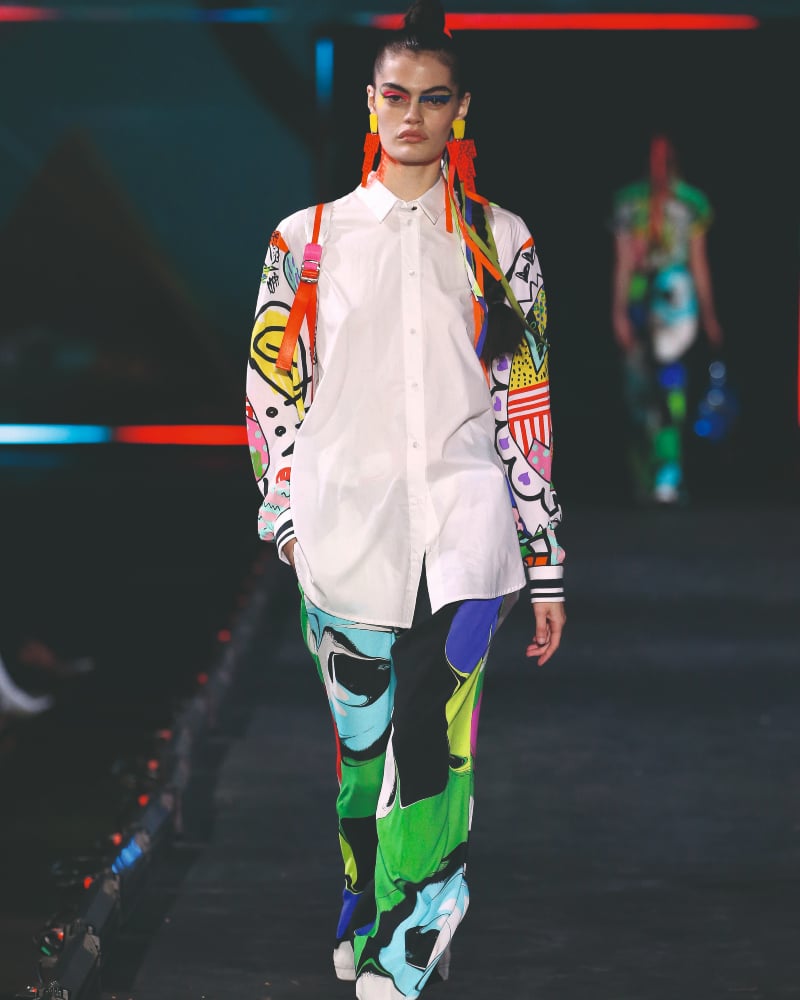
Made famous for its colour-popping prints and artistic patchwork, Desigual’s designs are a distinctive feature of a brand that’s instantly recognisable on the street. Each season the design team are given a single word or phrase to fuel a new collection before jetting off with sketchbooks in tow and no technology to seek inspiration. The result of A/W 2019’s term ‘La Energy’ is a high-octane collection brimming with wear-around-the-clock denim staples, rainbow-hued knits, Studio 54-style dresses designed for all-night dancing, and athleisure ensembles splashed with graphic prints to throw on the next day.
The label’s latest S/S 2020 ‘el love’ line is the first collection since the brand’s recent image transformation. The universally-appealing clothing, accessories and shoes demonstrate the label’s signature use of colour and playful prints, but offer a fresher feel thanks to fluid silhouettes and relaxed cuts filled with Hawaiian, Indian, tropical and African influences. “It is a very diverse and rich collection. It’s full of contemporary stories. Stories that needed to be told,” said Mónica Zafra, stylist at Desigual.
Rule-breaking branding
In a surprising and somewhat controversial move, Desigual also revealed new brand logo, which in an industry first, features all the lettering flipped in reverse, a leap further than its previous signature backwards ‘S’. While initially discouraged from making such a drastic and permanent logo change, the company was eager to move outside the familiar and reach new demographics. Chief marketing officer Guillem Gallego revealed the objective behind the logo rotation: “It’s to invite people to think. To make them feel awkward. To make them step outside of their comfort zones. Which is exactly what we’ve done.”
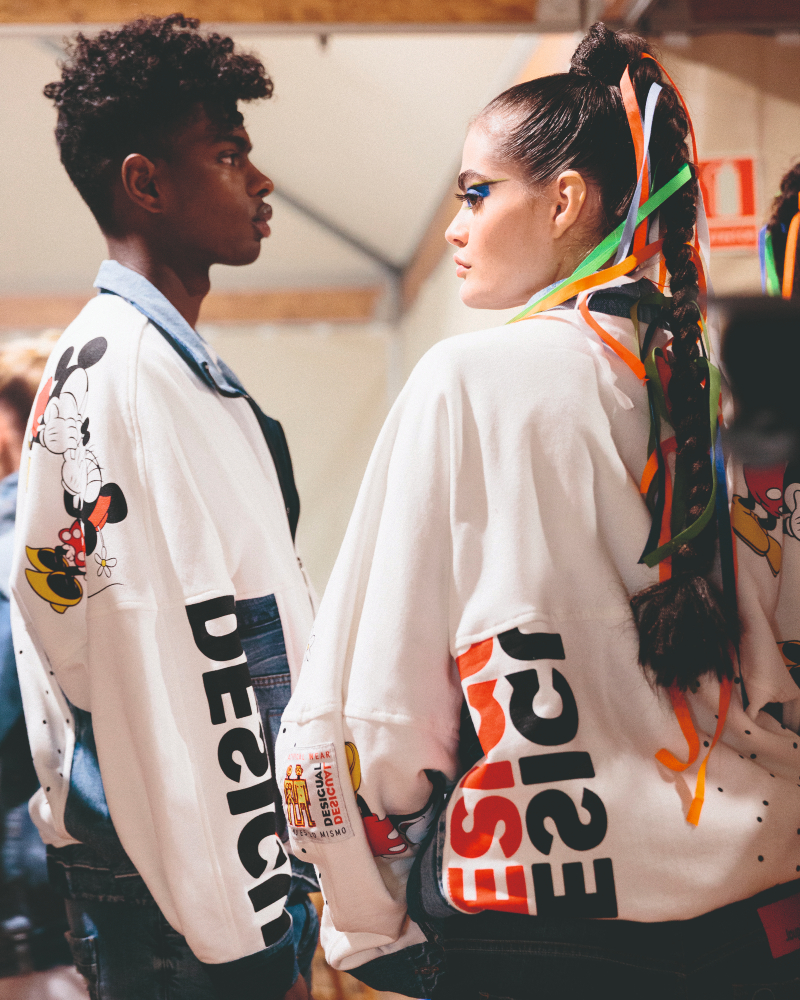
In addition to its daring re-branding, Desigual has refreshed its digital experience and is set to roll out a new retail concept, first at its flagship store in Barcelona and then in other select cities, with plans to have refitted all of its international stores by 2020. The company has also launched Desigual inBETA, an experimental platform that promotes collaborative capsule collections and unique pieces with different artists and brands from urban culture, among which are Barcelona-born artist Miranda Makaroff and the legendary French designer Christian Lacroix, who has been collaborating with Desigual since 2011.
A new era of ethics
Desigual has been refreshingly forthcoming about its goals to not only re-engage with its current consumers but to also broaden its appeal to the millennial market. One of the ways in which the brand appears to be connecting to younger customers is through its latest campaign, which they describe as “an ode to the illogical”. The campaign, titled ‘Forward is Boring’, has no models or products and instead features a series of incomprehensible phrases that can only be read in ‘selfie’ mode. Research has shown that customers are increasingly taking notice of the stands brands take on pressing issues, with nearly two-thirds of consumers now buying on beliefs, according to a 2018 study by Edelman Earned Brand, which surveyed 8,000 people across eight markets. Belief-driven buyers will now support or boycott a brand solely because of its position on a social or political issue. The survey further revealed that many of these consumers believe brands are a more powerful force for societal change than the government. Desigual sees itself as a value-led brand that has long been championing ethics, including equality and sustainability.
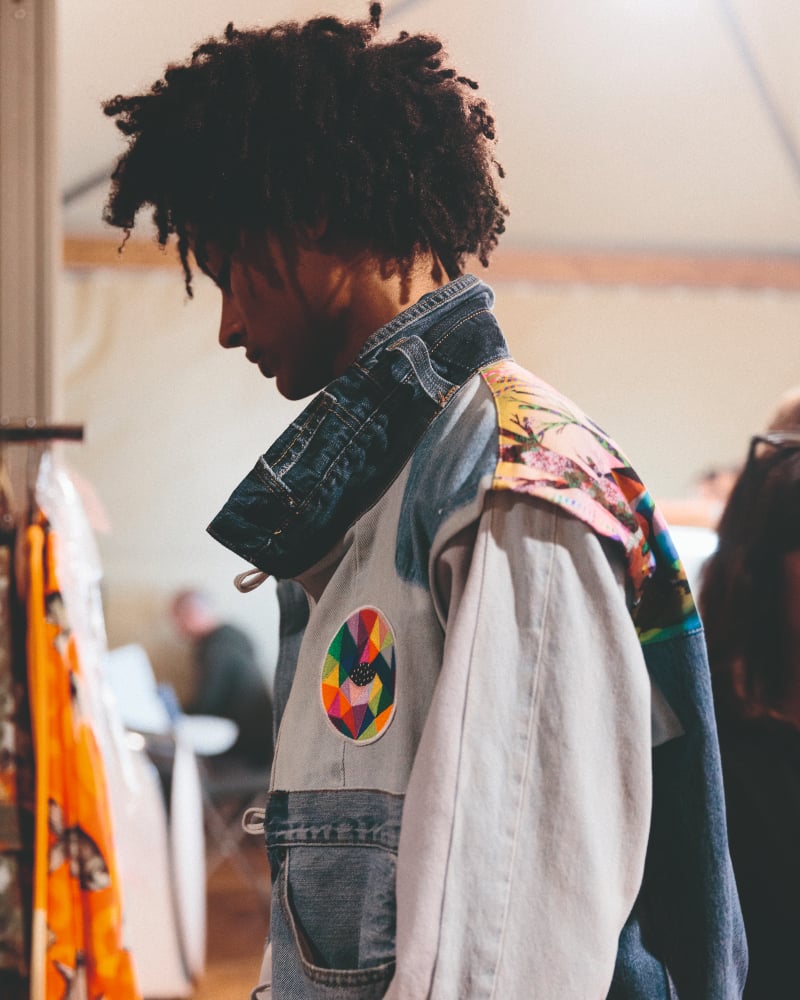
As well as earning highly recognised green building certifications for a number of its key spaces, the company regularly carries out eco-friendly projects to reduce its carbon footprint. “Eleven per cent of the collection is made from sustainable fabrics, and our goal is to keep increasing this percentage with every coming season,” said product director Clara Delmuns, reasserting the commitment that has changed both the structure and mind-set of the fashion company. From the brand’s Balearic island debut up to the global fashion force it’s known as today, the same free spirit still runs through the core of the company as it enters a new chapter. As Desigual designs its way towards a more innovative, sustainable and diverse future, it’s becoming a modern brand that more and more people can get on board with.
Media: Supplied








